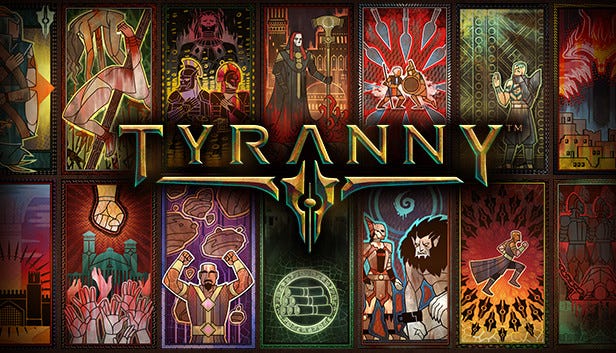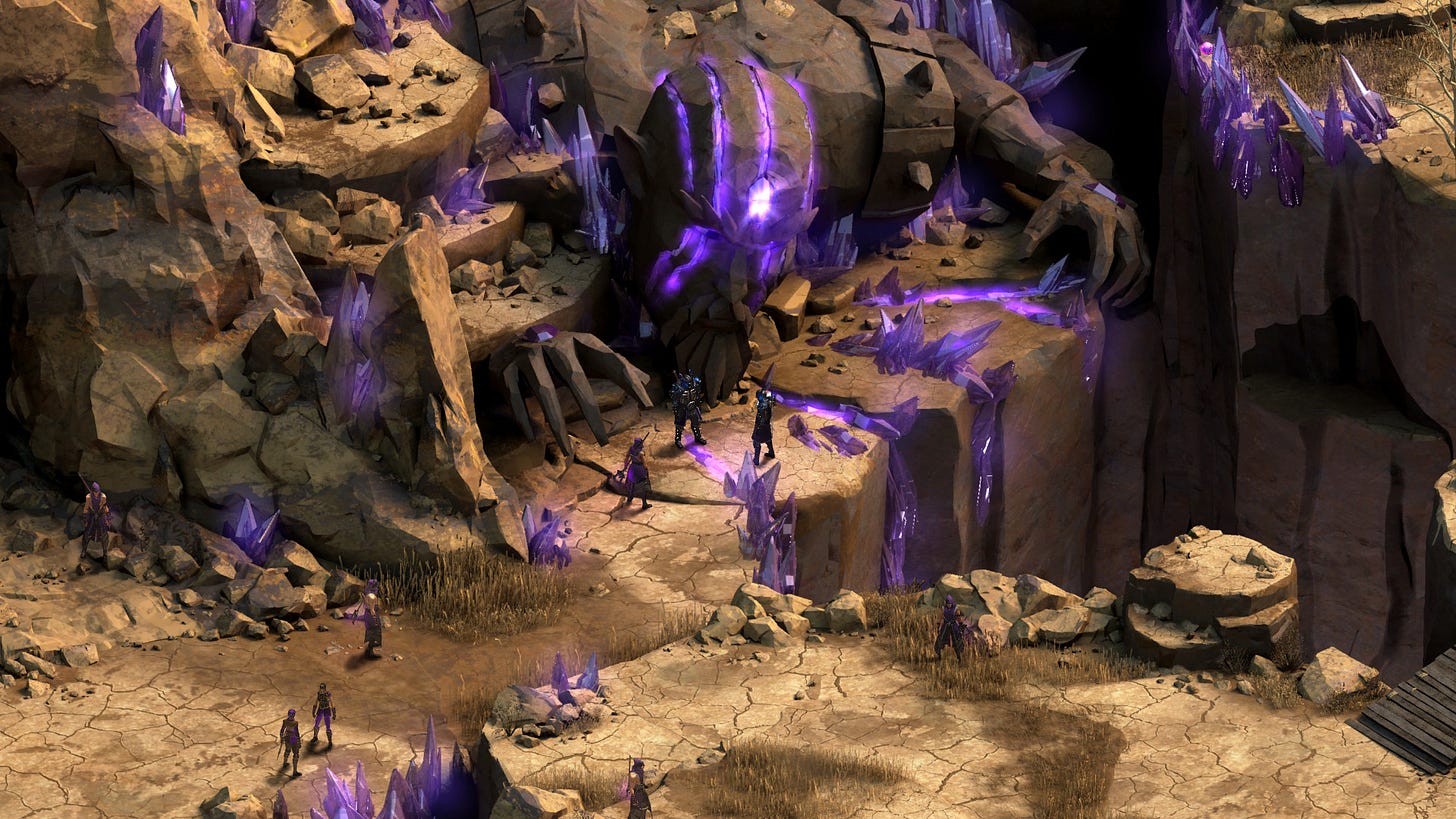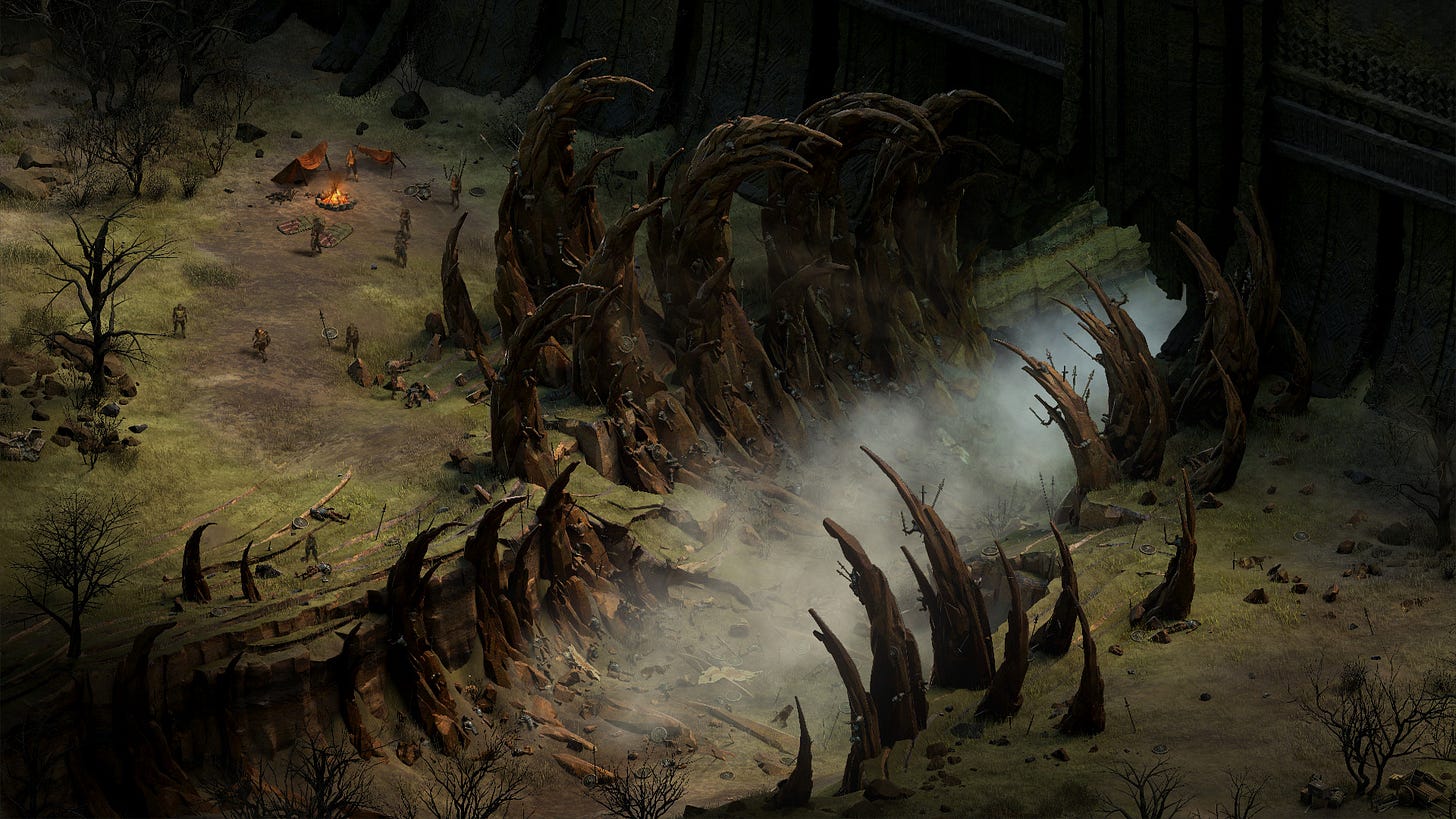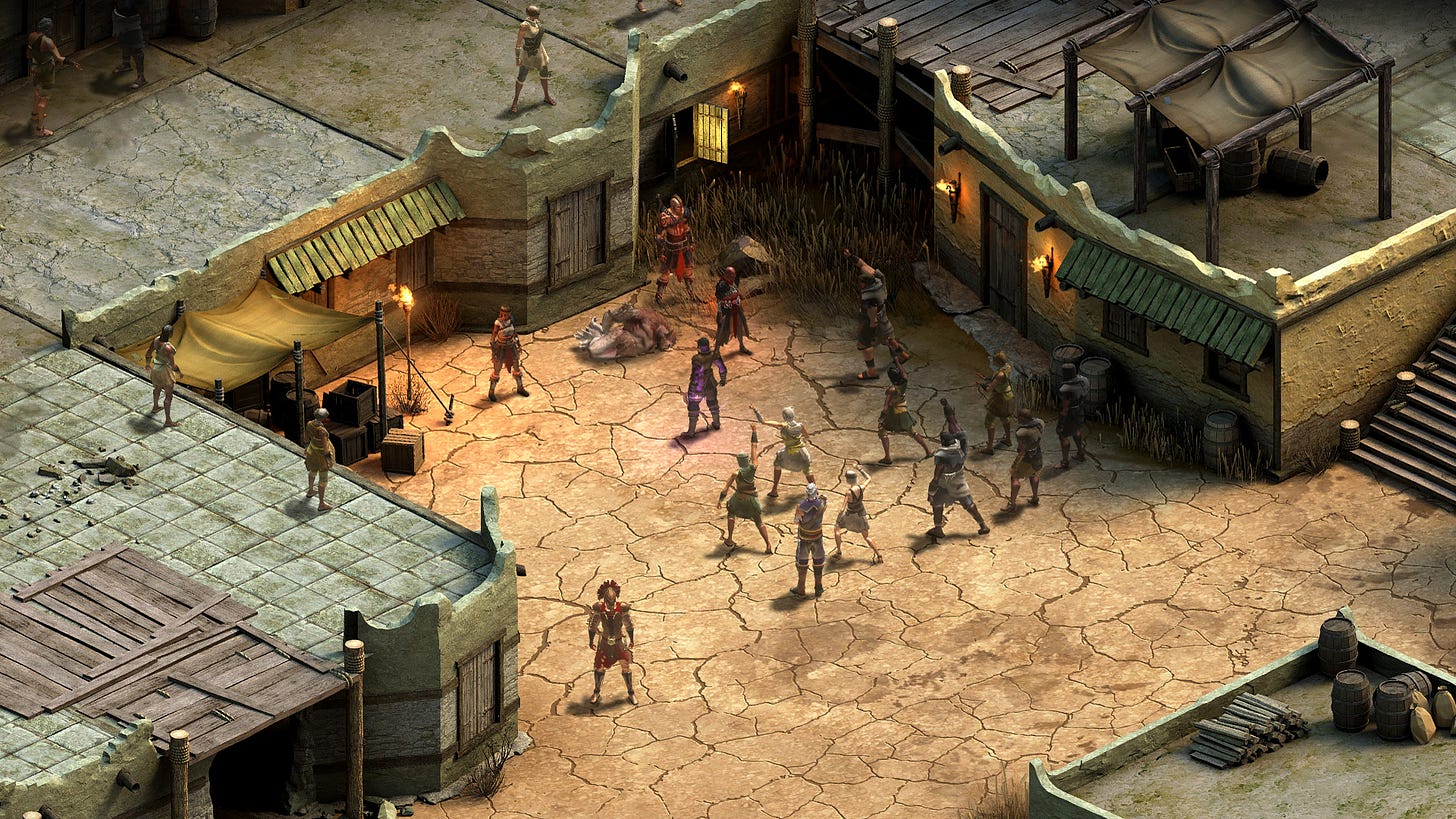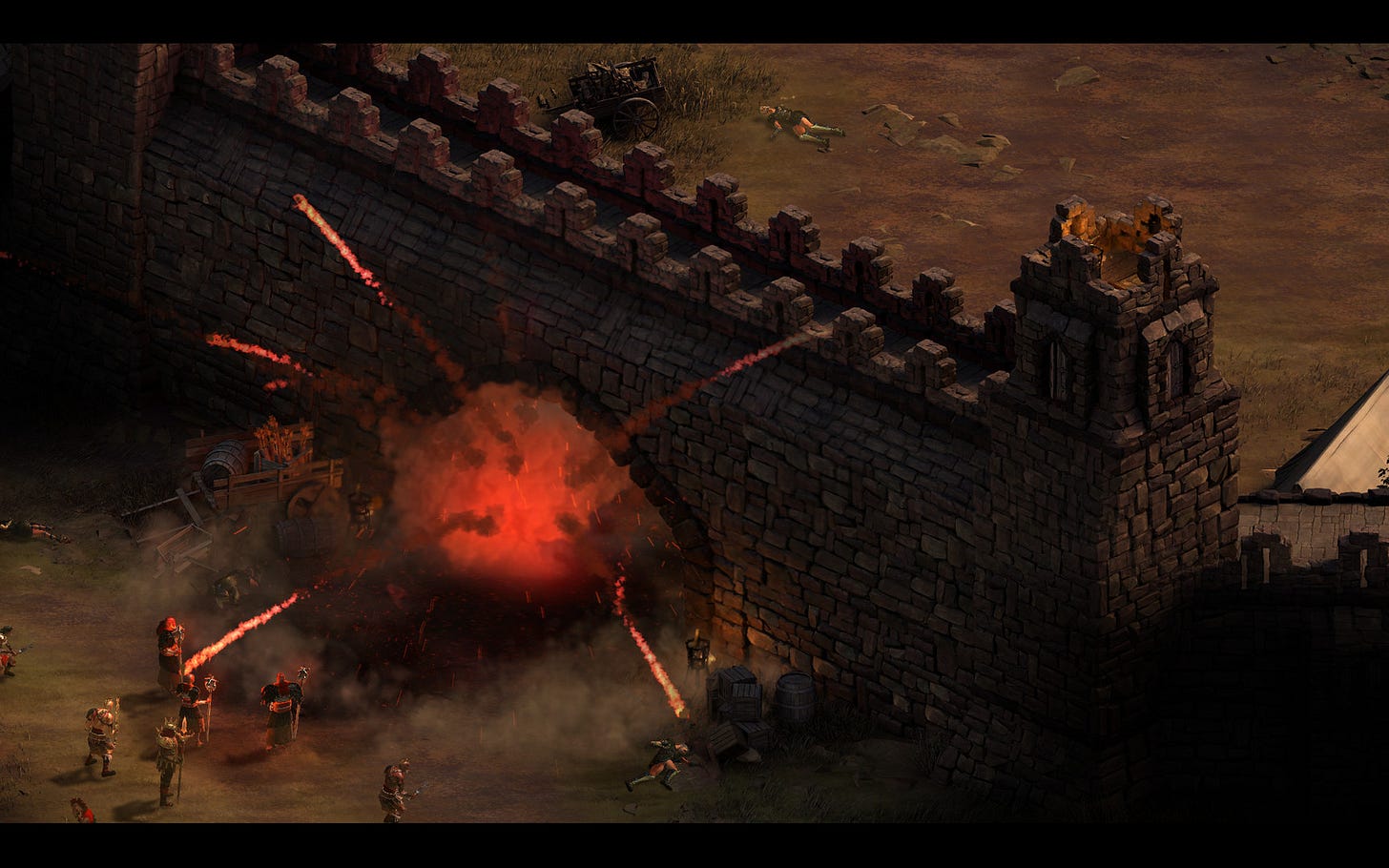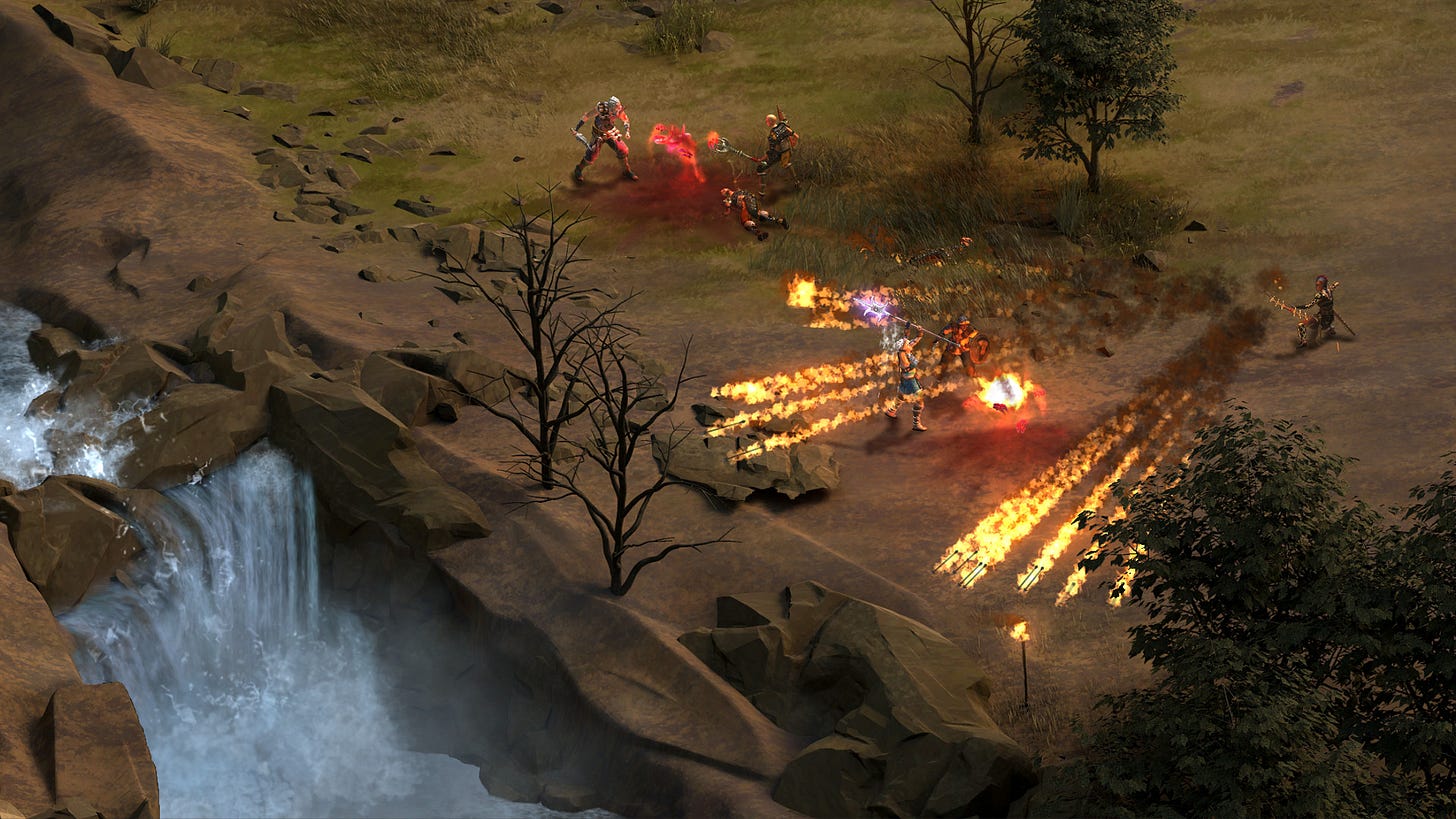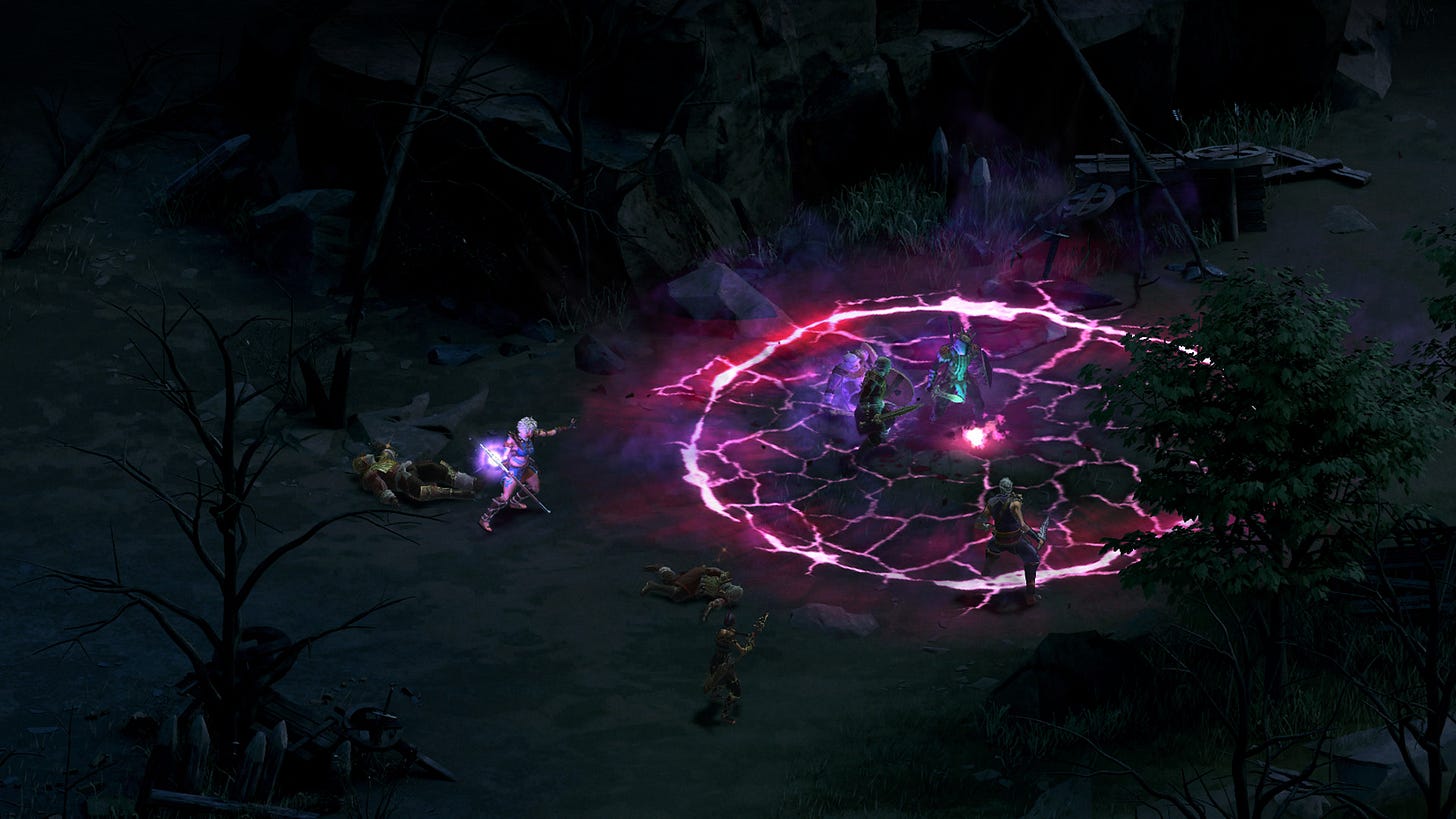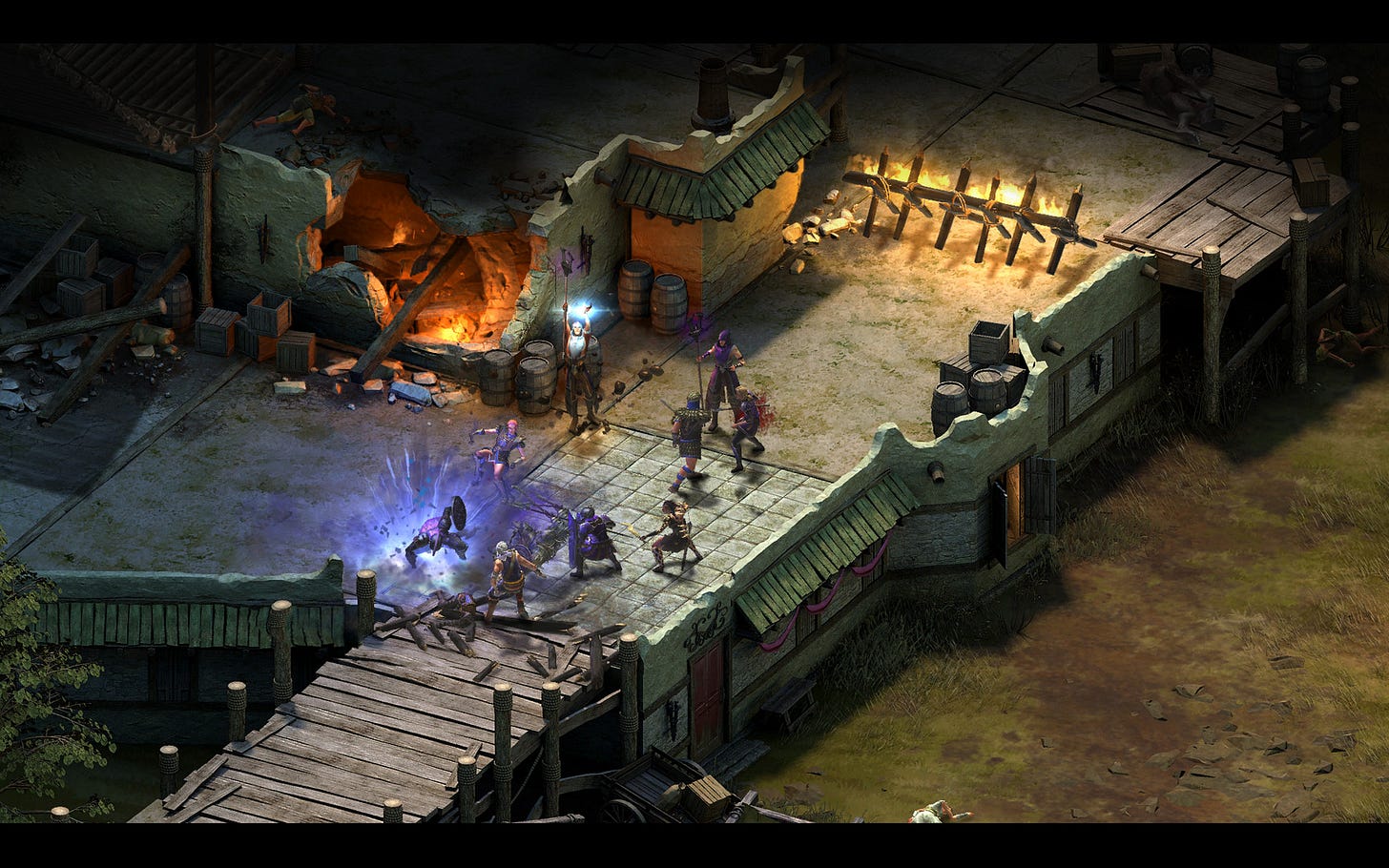Tyranny Review (Originally Published Nov. 2016)
This is a republished review from the game's original release. The website it was written for removed all of its content.
This is a republished review from Tyranny’s original release—it does not cover any of the DLC or post-launch updates. The website it was written for (Newegg Gamecrate) erased all of its articles before shutting down, rebooting, and then going dormant once again.
With Avowed now available on Xbox and PC, as well as Game Pass, I thought it would be a good time to republish this review of a game from the same developer nearly a decade ago!
What follows below is my original, unedited review:
Review: Tyranny Is A Complex Story Of A World Where Evil Wins
After finishing a great work of fiction, it’s not uncommon for me to experience a moment of silence and reflection. After I turn the final page or watch the credits roll, I prefer to take time to reflect on the journey I’ve just experienced, what I learned, and what it meant. In the case of Tyranny, the latest roleplaying game from the venerable developers at Obsidian, that moment of reflection lasted a bit longer than usual.
Unlike the vast majority of fantasy RPGs, including Obsidian’s previous game, Pillars of Eternity, Tyranny does not employ a traditional high-fantasy setting. There are no fantastical beasts like dragons, goblins, or orcs to contend with, you are not the chosen one that must rise to the occasion and vanquish evil, and it’s not a 40+ hour sprawling epic adventure. In this case, you’re cast into a world where not only did evil win, but it flourishes with you as its right hand.
The Overlord Prevails
From the opening scenes, it's abundantly clear the concept of "evil winning" shines through in every aspect. In the world of Tyranny, you play as the Fatebinder, a powerful and high-ranking officer in the employment of Kyros, the great overlord. During the opening prologue, referred to as Conquest, you'll make a series of choices that build your reputation and set the foundation for your character as you lead the armies in their subjugation of the Tiers, the southern regions. This is at the core of what makes Tyranny so special.
Under Kyros' rule are two rival military factions that, despite their hatred for one another, must find a way to work together. The Disfavored are a tight-knit group of trained and disciplined, albeit merciless and brutal, soldiers, whereas the Scarlet Chorus is a scattered, rabid, and often chaotic collection of gangs and former prisoners turned murderers. One has order, one has numbers.
You're in charge of negotiating disputes and ensuring they're successful in their mission.
The actual game begins when a group of rebels rise up to challenge the overlord and Graven Ashe, the leader of the Disfavored, and The Voices of Nerat, the leader of the Scarlet Chorus, cannot agree on how to handle the situation. The overlord specifically sends you to issue an Edict -- a magical proclamation that brings devastation to a region until a specific requirement is met -- to spur them to action. In this Edict’s case, the siege must be resolved or everyone in the entire region will die, including you and your allies. Through your decisions, you'll eventually side with either the Disfavored or the Scarlet Chorus.
These are the moments that both make and break the experience of Tyranny. On more than one occasion I had to step away from my desk simply to deliberate pivotal moments in the game because of the gravity of the situations. Without ruining anything, one specific scenario may result in many players murdering a baby in its crib simply to fulfill the decree of the overlord.
But that isn't to say the game is full of false dichotomies and varying degrees of disdain. It's not a matter of "Burn down this house full of babies" or "Obliterate this temple full of puppies" in all cases, but the majority of the game fits very cleanly into the decidedly gray area of moral dilemmas. It's very difficult to be a "good guy" and for someone who typically plays as a paladi like myself, that was hard to stomach at times.
There is no karma scale and you won't become more or less evil based on what you do, it's just a world full of people and decisions that all form their own opinions about you based on your actions. In a lot of cases, you may not even know the breadth of the consequences of every decision you make, which furthers its emulation of a more realistic and less tangible system of morality.
It’s Good to Be Bad
At character creation, you're presented with a handful of skill specializations to pick from, but no classes, against a backdrop of a smoldering, deserted wasteland. Want to play as a traditional Warrior? Pick one-handed weapons and shields. Or maybe you'd rather use bows from a distance. You could even specialize in one-handed weapons and a certain type of magic as well.
Similar to The Elder Scrolls games before Skyrim, you'll increase your level in each skill by performing it more often. Killing enemies with a two-handed hammer will increase your two-handed skill, opening locked chests will increase your Subterfuge skill, and so on. All of that feeds into an overall level as well, giving you a single attribute and single skill point to invest in your progression. But unlike Skyrim, this is a decidedly old-school roleplaying game in the vein of Baldur's Gate and Neverwinter Nights -- it's not gonna be for everyone.
Your main character has a litany of skill trees to pick from, but it's only worth investing heavily in two, and maybe a third as an accent, to get the most out of them. And just like any game made by the folks at Obsidian or Bioware, you'll have a colorful cast of followers to recruit on your journey.
Since there are no classes, each companion takes on a personality, and skillset, that's all their own. From Barik, the ironclad Disfavored warrior who is literally fused to the armor that he wears due to a horrific side effect of an accident, or Verse, the foul-mouthed rogue who leaves the Scarlet Chorus to join your ranks. Many of the followers in the game, such as Eb, a former rebel, or Kills-in-Shadows, a beastwoman, could even be killed when you first meet them if you're hostile enough.
Every character in the game has an intriguing story of personal sacrifice and triumph to tell; stories that are, in most cases, more interesting than the game's core narrative itself. Which makes it all the more disappointing that none of them are ever resolved. You don't get to find out how to rescue Barik from his armor -- rendering him unable to ever change his armor throughout the entire game, a frustrating concession since none of the other characters should specialize in heavy armor given their skill sets. I wanted more than anything to advance their personal storylines, complete loyalty missions, or see them evolve in someway. Instead, they either grow to respect or fear you over the course of the game, but never really change in a meaningful way.
Even though your companions suffer from a lack of narrative depth in some cases, building relationships is still more than worthwhile. Tyranny employs a unique reputation system for different factions and your individual followers. Based on what you do and say, companions will grow to fear you or become more loyal. Factions will grow more loyal, or will increase their wrath towards you. In some cases, a follower could fear you and feel loyalty, or a faction could hate or fear you, but feel loyalty at the same time. Reaching the ends of both spectrums is tricky and rare, but entirely possible.
When you hit a milestone in a relationship, you unlock a reputation ability. For example, if the Disfavored feel loyalty towards me, it demonstrates my respect among the army and gives me the ability to inspire and buff my allies. Some of these powers are passive bonuses, while others are active abilities. For followers, you unlock combo abilities that can be triggered between two characters. My favorite was with Verse, where I could punch the ground so hard it sent her into the air where she blasted a series of well-aimed and powerful arrows into a defined enemy.
Brutality and Conquest
Combat itself is a bit different than what fans of Pillars of Eternity might be expecting. It's similar in that you can stop and pause combat to issue orders, click where you want allies to go and who to attack, and manage your inventory and skills from menus. But now, party sizes are decreased to 4 this time around and every ability you have possesses an individual cooldown time. In addition, each character must wait between actions. This results in a lot more downtime during battle and heavy use of idle animations, which are a bit jarring. In the latter half of the game, this is mostly solved through the added complexities and strategies in combat, or by speeding up the game.
At first, I didn't enjoy the combat as much, but as it expanded with more reputation abilities, more followers, and even artifact powers from special legendary items, things started to click for me. So once the repetitive nature of encounters reared its ugly head (there are maybe a total of 10 or so different types of enemies and most of them fight the same) I was a bit disappointed. For such a rich, detailed, and unique setting, it honestly feels like some aspects of the game are unfinished or were rushed in development.
Some quests are missing necessary steps and details (developers have posted on forums since launch to explain the order of events that weren't communicated well), as mentioned, none of the followers resolve their storylines, some of the most exciting parts of the game happened in the truncated final act, and some portions of the game are just never fully realized.
The cliffhanger ending that happens almost entirely with written text on illustrated backgrounds feels more like a setup for expanded DLC and an eventual sequel than it does an actually cogent conclusion to the story. The narrative thread of the game is only partially resolved as you're left on the eve of an even larger conflict as the credits roll.
The musical scorer in Tyranny is nothing short of spectacular. Organizing the tracks for something so oppressive and ominous must have been difficult, but you wouldn’t know it. From the moment that the Obsidian and Paradox logos flash in the opening loading screens, to the main title menu, the rumbling bass and soaring tunes make it clear that this is an adventure of epic proportions. While the entire game isn’t voiced—be ready to read thousands of lines of dialogue with your own eyeballs—the voice acting that is there is some of the best I’ve heard in this style of RPG. Between the score and voice acting, the sounds of Tyranny are nearly flawless.
Becoming a Fatebinder
Tyranny struggles to fit all of its ambitious designs into its tightly woven story, leaving open loose ends and underutilized mechanics. While it could have been even better, as the first two-thirds of the game are some of the best roleplaying I've ever seen, its conclusion feels like a shadow of what it was originally conceived as.
That being said, don't think it takes away from the core of what makes Tyranny such a powerful and compelling story. I was glued to my monitor for the full 25-30 hour adventure and while I was left desperately wanting more at the end, I'm both satisfied with the journey and the ending that my Fatebinder reached.
Fans of classic PC RPGs such as Baldur's Gate, Neverwinter Nights, or the recent Pillars of Eternity, owe it to themselves to join the ranks of Kyros' forces and embark on a riveting conquest as one of the legendary and powerful Fatebinders. Gather your party and venture forth!
Overall Score: 8.75
With a rushed third act and a few frustrating quirks here and there, Tyranny falls just short of reaching the legendary heights of the game’s that inspired it. Obsidian has however once again delivered on their pedigree with an engrossing and inventive story of betrayal and tyrannical rule. A must-play for fans of isometric narrative roleplaying games.
Story: 8
Obsidian struggles to wrap up all loose ends before the credits roll, but that doesn’t take away from the wonderfully brutal and troubling story of a world where evil was victorious.
Graphics: 9
With a slightly more stylized look than its spiritual predecessor, Pillars of Eternity, Tyranny’s visual style is intriguing and eye-popping. The bright and bold colors of traditional fantasy are replaced with dark and brooding tones.
Gameplay: 8
The new cooldown-based combat and smaller party size infuse more downtime than necessary and ejects much of the tactical complexity, but it retains the soul of what makes these sorts of RPGs so addicting and satisfying.
Sound: 10
As a veritable masterpiece of modern gaming, the soundtrack in Tyranny is fantastic. Soaring tracks mixed with deep, bass-laced thundering tones to deliver a score that never stops trumpeting your conquests.
Do you like this idea of me republishing older reviews from over the years that no longer exist online or were written for defunct magazines? Let me know down in the comments!


